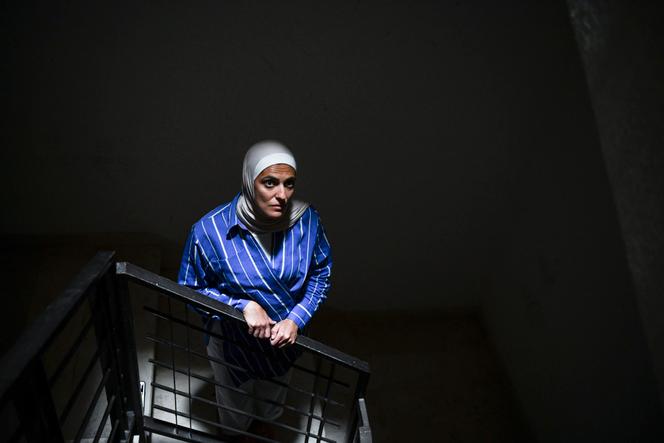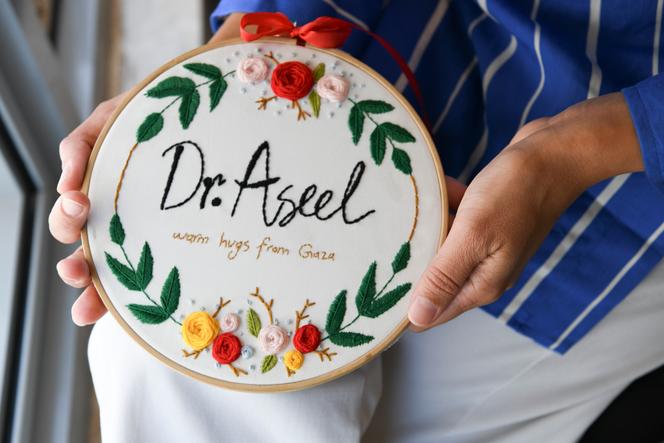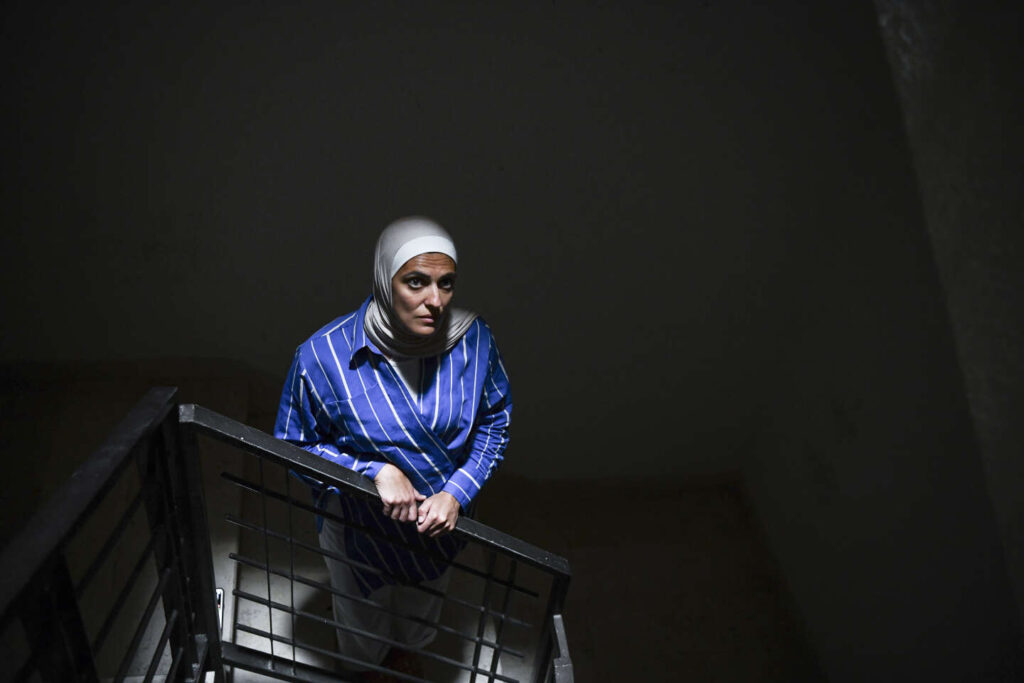 Dr. Assid Jallad, a gynecologist who volunteered in Gaza for a month, at his clinic in Shumaisani, Amman, May 21, 2024. Nadia Bseiso, Le Monde
Dr. Assid Jallad, a gynecologist who volunteered in Gaza for a month, at his clinic in Shumaisani, Amman, May 21, 2024. Nadia Bseiso, Le Monde
Outraged, like her Jordanian colleagues, by the brutal operation that Israeli forces have been carrying out in the Gaza Strip since the bloody Hamas attack on October 7, 40-year-old obstetrician-gynecologist Asir Jallad refuses to remain powerless. Between March and April, she spent a month in the Palestinian territories, treating women and helping them give birth. Back in Amman, she can't forget what she saw. She spoke of “the constant noise of drones, the distant bombings, the stench of trash that is no longer collected, the ruined roads where children walk barefoot.” But she also spoke of “the resilience of the Gazans.” “Women say they are exhausted by the conflict. But they also think about the future, and plan for when the war will end.”
Though less visible than the wounds caused by the airstrikes, women's health needs are “enormous,” she said. “Some women suffered from bleeding and in some cases had to have their hysterectomies removed – a procedure that could have been avoided in other circumstances. Some women had infections that couldn't always be diagnosed because of a lack of testing. Women who were several months pregnant couldn't have ultrasounds because of the fighting and repeated displacement,” explained a doctor working at the US NGO International Medical Mission's field hospital in the so-called “humanitarian” area of Al Mawashi, on the coast west of Rafah.
This was just before Israeli forces invaded the town on the border with Egypt on May 6. Civilians had been encouraged to gather in the town, believing they would find refuge, before fleeing again.
Read more Subscribers only: Three Jordanian doctors talk about Gaza's descent into hell
Jarad keeps in contact with Gazans: “Sometimes it takes days for news to reach us by message.” When she was there, around 10 births took place each day. “Vaginal births are carried out without painkillers. To ease the pain, some women pray for those who have died during childbirth and for their families scattered across the enclave.”
'Without a break'
The usual advice given to pregnant women, such as a healthy and varied diet, is contradictory: “People have been surviving for months without canned food and drinking water. Women who already have children feed them first. Anemia is common. After giving birth, women stay in tents with relatives or return to overcrowded shelters with no time to rest.”
 Dr. Asid Jarrad shows a gift that was given to her in Gaza, where she worked as a volunteer, in her clinic in Shmaisani, Amman, on May 21, 2024. Nadia Bseiso, Le Monde
Dr. Asid Jarrad shows a gift that was given to her in Gaza, where she worked as a volunteer, in her clinic in Shmaisani, Amman, on May 21, 2024. Nadia Bseiso, Le Monde
Two women from Gaza particularly touched her: a 17-year-old girl who had come to give birth. “She was still a child, already a widow because of the war, and pregnant. This mother was returning to her family, alone with her baby. But she was determined: 'I will do it. I will raise my son and tell him about his father.'” And one of the children she spent the evening with, 11-year-old Yousef, said: “He was injured twice, at home and in the hospital where he was being treated. He had his leg amputated and needed surgery, but he was paralyzed by fear and refused.” The obstetrician-gynaecologist helped calm him down.
15.44% of this article remains available for reading. The rest is available to subscribers only.



